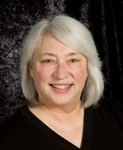DEAR ERI COMMUNITY: Help please! I am working with a 5 soon to be 6 (may 25) kindergarten student. Despite the many academic challenges he faces he clearly has no established dominance . Based upon all my observations he is equally efficient with both hands when it comes to handwriting (which is poor as one would expect).He does not demonstrate any lower extremity dominance either . I am very unclear as to how to proceed with use of writing tools. Based upon a recent observation when drawing a family portrait(again very immature) he started all but 2 of his 6 pics with his left hand but in all 6 switched to his right hand. This happens consistently, but sometimes he starts with his right hand. Any suggestions, resources would be greatly appreciated!! I am really worried about this little guy. He is in half day AM kindergarten now with PM in sub separate , going to 1st grade in Sept.
Thanks
How can I be an expert SLP for every patient I see?
Posted by Karen
DEAR ERI COMMUNITY:
Hi, I work in a hospital setting where I see adult acute care, acute in-patient rehabilitation, and out-patient clients.
I feel as if I can give good therapy to anyone I come across, but not necessarily be an expert in EVERY area for EVERY diagnosis at EVERY level that surprises you through the door.
I’m wondering if others out there in similar work settings feel similar…….
Thank you so much
]]>BOSTON STRONG
 Our hearts continue to go out to those affected by the tragic events of last week. As a Massachusetts based company, all of us in the office have many loved ones, colleagues and friends who are connected to our great city of Boston and the tradition of the Boston marathon. Our two company owners are themselves alums from Boston University and as therapists, understand the many challenges that all the families affected by the bombings are going to face in the future.
Our hearts continue to go out to those affected by the tragic events of last week. As a Massachusetts based company, all of us in the office have many loved ones, colleagues and friends who are connected to our great city of Boston and the tradition of the Boston marathon. Our two company owners are themselves alums from Boston University and as therapists, understand the many challenges that all the families affected by the bombings are going to face in the future.
If you would like to help, Gov. Patrick and Mayor Menino have set up a fund for those most affected by the Marathon bombings: onefundboston.org. In addition Education Resources will support this fund, by giving a percentage of our sales from the month of April.
Thank you for your outpouring of care and concern, as our community begins to heal from this senseless tragedy
All of us at Education Resources
Carol, Barbara, Alyson, Cheryl, Kathy, Donna, Debbie, Colleen, Judy, Marianne, Marci, Mandy
Baby Steps: Ambulation for the 0-3 Population; CEU course for PT’s, PTA’s, OT’s and OTA’s
 How do you maximize your time and target gait in your interventions with infants and toddlers? This course will focus on pre and early ambulation in a population that is predisposed to rapid and dramatic changes: the birth to three population. We will examine typical and atypical preparation for, and development of, ambulation in the infant and toddler. The impact of biomechanics, the neuromuscular system, the sensory system, orthotics, tone management, and assistive equipment will be integrated as participants learn to build intervention strategies to address ambulation early and effectively in infants and toddlers with diagnoses such as CP, developmental delay, prematurity, and Down Syndrome. Course material will be presented using lecture, videos, lab and group problem solving.
How do you maximize your time and target gait in your interventions with infants and toddlers? This course will focus on pre and early ambulation in a population that is predisposed to rapid and dramatic changes: the birth to three population. We will examine typical and atypical preparation for, and development of, ambulation in the infant and toddler. The impact of biomechanics, the neuromuscular system, the sensory system, orthotics, tone management, and assistive equipment will be integrated as participants learn to build intervention strategies to address ambulation early and effectively in infants and toddlers with diagnoses such as CP, developmental delay, prematurity, and Down Syndrome. Course material will be presented using lecture, videos, lab and group problem solving.
 [/caption]
[/caption]
We are thrilled to present this course by Faculty Member: Jan McElroy in multiple locations:
May 3-5, 2013 – Cincinnati, OH
May 9-11, 2013 – Fort Wayne, IN
May 17-19, 2013 – Las Vegas, NV
May 31-June 2, 2013 – Cedar Rapids, IA
June 21-23, 2013 – Hartford, CT
August 2-4, 2013 – St. Petersburg, FL
September 20-22, 2013 – TBA
October 18-20, 2013 – Sacramento, CA
Please visit our course page to download a brochure to share with your colleagues or to register
Suggestions for Coma Stim?
Dana Posts:
DEAR ERI COMMUNITY:
I work on a sub-acute brain injury rehab unit. Residents are admitted for generally 3 months (many stay longer). I’m looking for some different treatment ideas for my coma residents. Any suggestions for coma stim? Even variations on traditional treatment methods are welcome. 5 days/week x 3 months can get very repetitive!!! Thank you in advance for the ideas!
]]>
